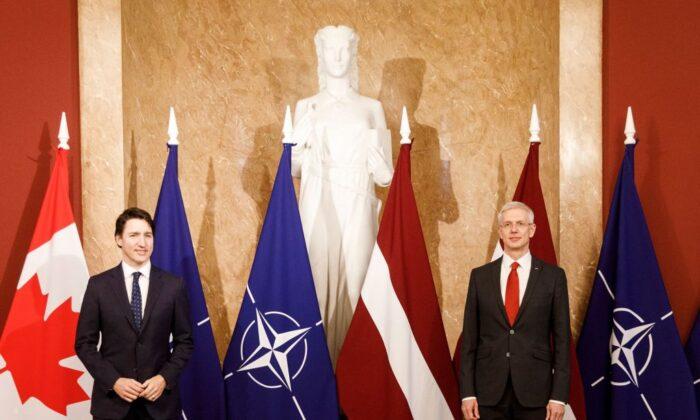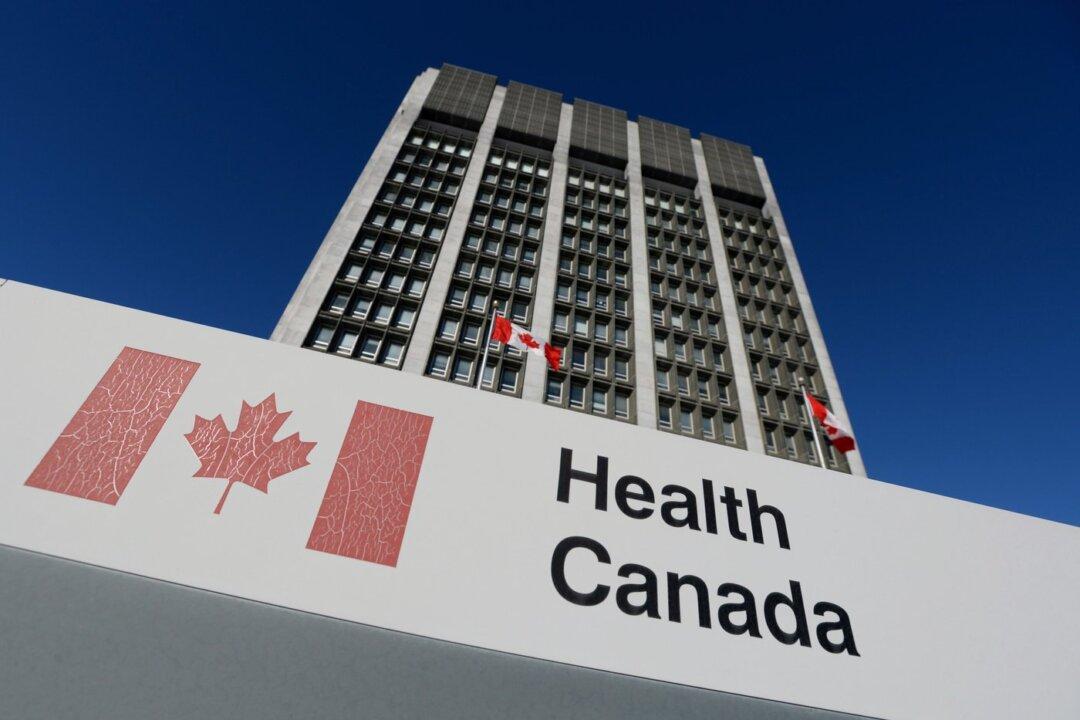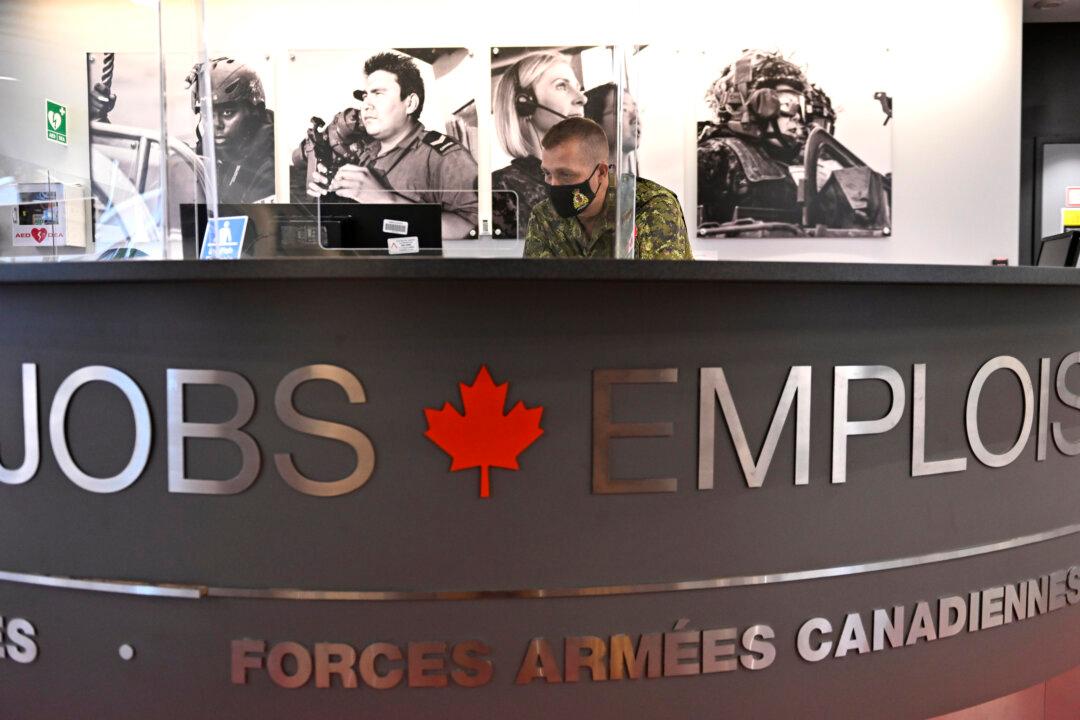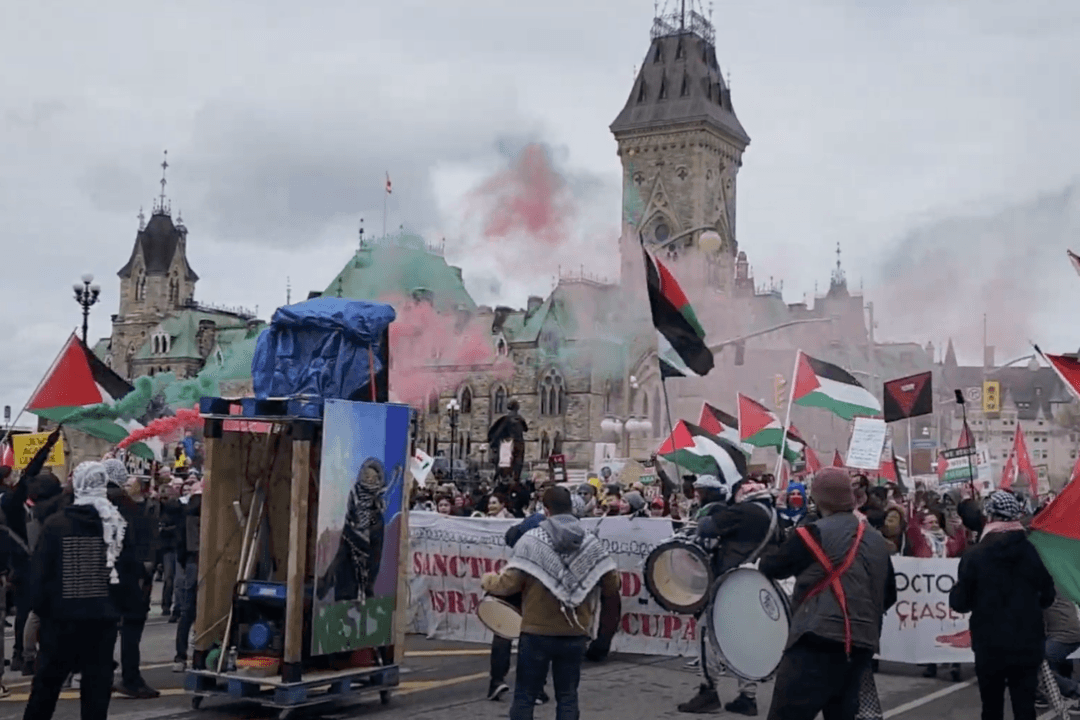Canadian Prime Minister Justin Trudeau concluded his visit to Latvia today where he announced his government was renewing its military operation in the country a year in advance to support NATO.
“This mission was set to expire next year and in light of the situation in Europe, we decided to renew it ahead of schedule,” Trudeau said in a joint press conference with NATO Secretary-General Jens Stoltenberg, Latvian Prime Minister Krisjanis Karins, and Spanish Primer Minister Pedro Sánchez.
“Operation REASSURANCE is the CAF’s [Canadian Armed Forces] support to NATO’s assurance and deterrence measures. The troops here are not only defending Latvia or Eastern Europe, they’re defending all NATO allies, including Canada.”
Trudeau said 540 CAF personnel are currently in Latvia and will be joined by approximately 130 others in the coming weeks. Canada is leading the NATO battlegroup in Latvia.
“Those weapons are much more useful right now, and in the coming weeks, in the hands of Ukrainian soldiers fighting for their lives, then they would be in Canadian hands,” Trudeau answered.
“But of course, we need to make sure we replace those weapons rapidly and that we continue to invest in the equipment that leads our armed forces to be able to continue to contribute not just in places like here in Latvia, but everywhere around the world where we are called on to do.”
Deterrence, Not Provocation
Stoltenberg said a priority for NATO is keeping the conflict from growing further.“Our ultimate responsibility is to keep our 1 billion citizens safe. This means we must do everything possible to prevent the conflict from spreading beyond Ukraine,” he said.
Commenting on the reinforcement of NATO’s eastern flank, Stoltenberg said “the purpose of that deterrence is not to provoke a war, but is to prevent the war—it’s to preserve peace.”
He added that Russian President Vladimir Putin wanted less NATO, but now “he’s getting more NATO.”
Russia has cited Ukraine’s alignment with and arming by the West, and its desire to join NATO, as key motivators for its invasion.
The other conditions are that Ukraine recognizes Russian sovereignty over Crimea, which it annexed in 2014, as well as recognizing the breakaway republics of Donetsk and Luhansk.
“They should make amendments to the constitution according to which Ukraine would reject any aims to enter any bloc,” Peskov said.
Peskov also said Russia was “finishing the demilitarization of Ukraine,“ pledging ”we will finish it.”





Friends Read Free